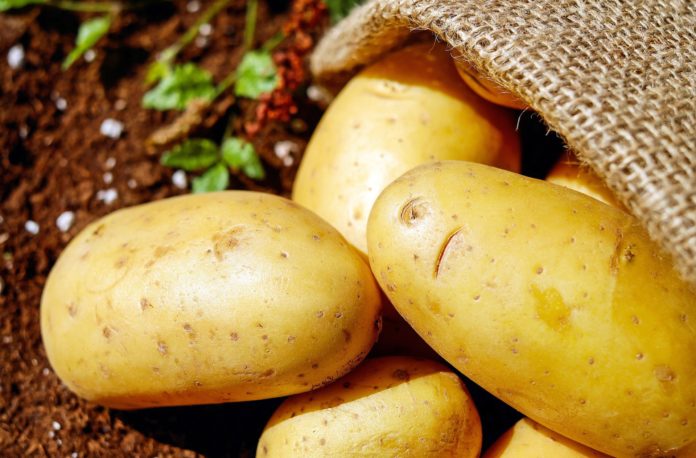Researchers at Texas A&M University investigated the potential for the CRISPR-Cas9 system to disrupt four copies of a gene found in the tetraploid potato (variety Texas Yukon Gold). The two-part study employed the Agrobacterium method to distribute the CRISPR reagents into the potato.
Potato is the third most important food crop worldwide behind rice and wheat, according to the study. Potato starch can also be used for paper, adhesive and textiles. With such a versatile crop, continuous advancements are key.
The first study targeted four copies of the gfp gene in a potato line. Following CRISPR treatment, the characteristic green fluorescence disappeared, as well as the sequencing of the gfp gene. This indicates that disrupting all four copies is achievable, confirming that all four alleles of a native gene should be able to mutate in the tetraploid potato.
Discoveries from the initial study were then used to disrupt the gbssl gene with the goal of terminating amylose from the starch. Tuber starch (T2-7) was found to be without amylose after one such knockout event.
“All four gbssI alleles in this event were mutated, however, it showed normal growth and yield characteristics. This edited event, with starch consisting only of amylopectin, should find industrial applications in traditional sectors such as paper, adhesive, textile, and bioplastics industries,” shared a news release from the International Service for the Acquisition of Agri-biotech Applications (ISAAA).
This starch will be beneficial when producing frozen foods thanks to its freeze-thaw stability. Potatoes with exclusively amylopectin are predicted to increase ethanol yields for industrial purposes or to generate alcoholic beverages.
“Follow-up studies will focus on eliminating the CRISPR components from the events and on evaluating the potential of clones with various amylose/amylopectin ratios for food processing and other industrial applications,” said the study.
Related Articles
New Technology Allows for Hot and Crisp French Fries









